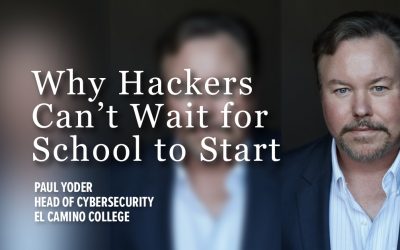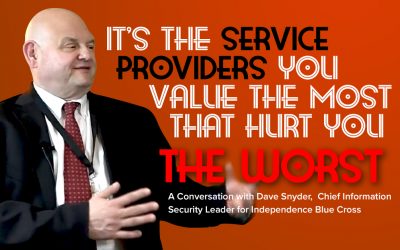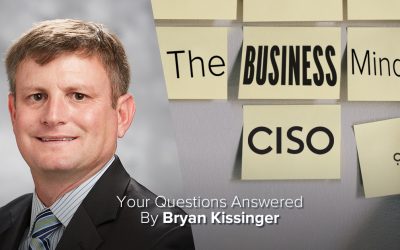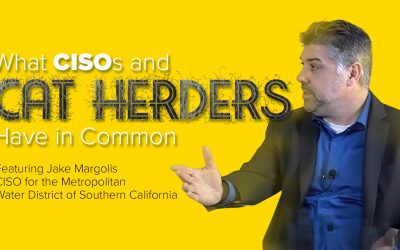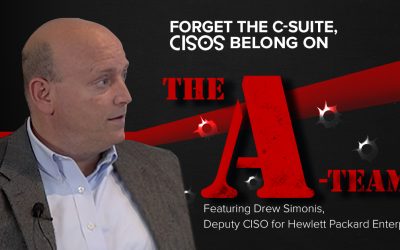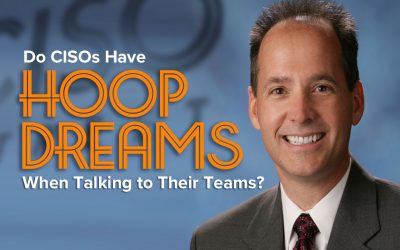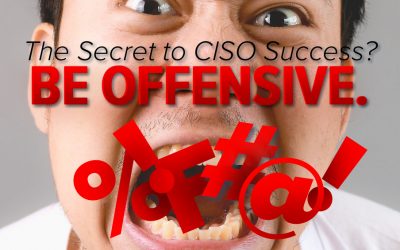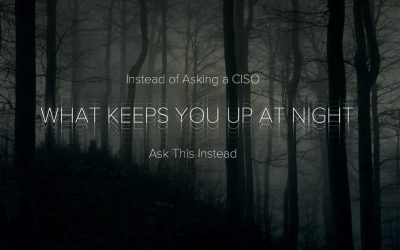
Joel York
Chief Marketing Officer, Accellion
Joel York joined Accellion in 2018 with 20 years of experience in cloud marketing, sales and product management. A seasoned executive and entrepreneur, Joel’s successes span growing startups to enterprise market leaders, such as Navis and SPSS. As CMO of Meltwater, he led worldwide product management, digital marketing, field marketing, and public relations. He spearheaded growth at Xignite as VP Sales and Marketing to lead the company from A to B round. Prior to Accellion, he founded Markodojo, an innovative marketing management SaaS. Joel is also a thought leader in the cloud community, advisor, board member, speaker and author of the popular cloud blog Chaotic Flow.
Joel holds a BS in Physics from Caltech, an MS from Cornell, and an MBA from the University of Chicago.
All Posts by Joel York
Why Hackers Can’t Wait for School to Start
Schools will struggle with more than COVID-19 as kids return this Fall – whether virtually, on campus, or a combination of the two. Colleges and universities contain lots of sensitive data that hackers cherish. Unless schools protect this PII, PHI, and IP, hackers will use it for social engineering, financial fraud, or a competitive advantage.
It’s the Service Providers You Value the Most That Hurt You the Worst
No man is an island. The same can be said about your business. Your organization relies on countless people for its survival, let alone its success. Ironically, many of these contributors work for someone else. Suppliers, vendors, consultants, contractors, and other service providers deliver tremendous value to organizations. Unfortunately, these service providers also pose significant risk.
Want to Close the Skills Gap? Here’s How.
The only constant in life is change. Sometimes change comes from an existential crisis. Need proof? Ask a CISO. The cybersecurity function traditionally solved technology problems with technology solutions. Cybersecurity experts learned however that technology is only part of the equation. Businesses do not function without people.
The One Healthcare Technology That Makes a CISO’s Blood Boil
On one hand, smart devices are a blessing to healthcare, producing valuable data that fuels healthy lifestyles and improves patient care. On the other hand, these devices are a nightmare, overwhelming healthcare providers’ ability to protect the data and the source of the data – patients.
Bryan Kissinger Answers Your Business Minded CISO Questions
Bryan Kissinger, CISO for Trace3, recently presented “The Business Minded CISO.” Bryan’s presentation generated lots of great questions, which he graciously answered below.
What CISOs and Cat Herders Have in Common
What do CISOs and cat herders have in common? Both are good at herding cats. This may be an odd skill for a highly-skilled profession that couples technology with risk mitigation. But the CISO role is a people role first and foremost. This requires the CISO to attend lots of meetings, ask lots of questions, and provide expert counsel.
Forget the C-Suite, CISOs Belong on the A-Team
Preparation was the A-Team’s key to success. Is it any different for a CISO? You know the old saying: when you fail to plan, you plan to fail. This applies to tough guys ambushing bad guys or CISOs protecting an organization’s intellectual property.
Alan Levine Answers Your NIST CSF Questions
Alan Levine, cybersecurity advisor and recently retired CISO for Alcoa, recently presented “True North: A Path to NIST Cybersecurity Framework Success.” Alan’s presentation generated lots of great questions, which he graciously answered below. If you missed his presentation or would like to watch it again, you can view it below.
Do CISOs Have Hoop Dreams When Talking to Their Teams?
The best CISOs are expert communicators. They articulate their strategy efficiently and effectively, and they tailor it for each stakeholder audience. In this regard a CISO is a lot like a professional basketball coach. A basketball coach communicates differently to players, coaches and owners. With players, the coach communicates the importance of fundamentals and preparation for the next game.
The Secret to CISO Success? Be Offensive.
Just about anyone who engages in some form of competition knows the best defense is a good offense. When an opponent moves or strikes first, he is in control and therefore possesses a strategic advantage. Modern CISOs have adopted this approach but it represents a shift in thinking. Cybersecurity originated as a defensive action. CISOs focused on repelling attacks and preventing data from unauthorized access.
Instead of Asking a CISO ‘What Keeps You Up at Night,’ Ask This
a CISO has never been asked “what keeps you up at night,” either no one knows he’s a CISO or everyone knows he’s a lousy CISO and doesn’t bother asking. Ideally, a CISO has the right programs, processes, and people in place so that he can sleep at night. This is every CISO’s goal. Once the fundamentals have been addressed and everyone in the organization knows what to do, how to do it, and when to do it, the CISO can prepare for tomorrow rather than worry about today. Then the pressing question asked of CISOs becomes not “what keeps you up at night,” but instead “what gets you out of bed every morning.” This new question represents a new mindset.
Want to Beat COVID-19? Consult a CISO
To paraphrase the military mastermind Sun Tzu, you must know your enemy before you can defeat him. Infectious disease experts around the world look to do the same with the coronavirus. To contain a viral outbreak, scientists must identify the virus’ origin and track its spread. Once located, scientists study the virus’ behavior and develop a containment plan. CISOs work the same way. At the first sign of malware or another virus, CISOs analyze metadata and user behavior to locate the malicious file or code. Security teams learn how the virus got in and how it spread. All impacted systems, applications, and endpoints must be quarantined. To beat an enemy, you must know how the enemy operates, regardless of whether the fight takes place in the natural world, a corporate network, or on the battlefield.
